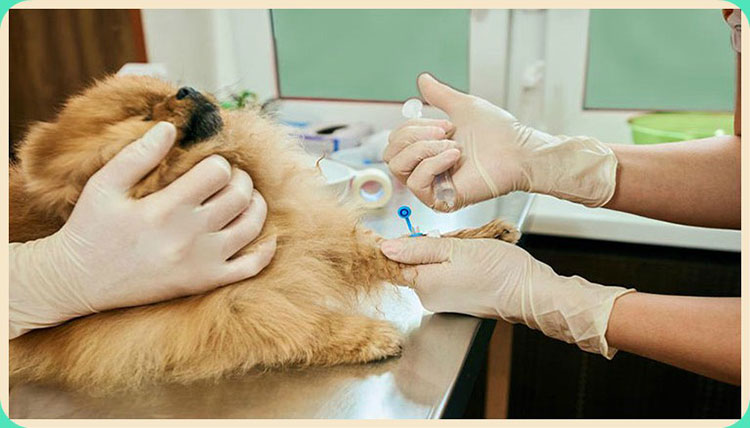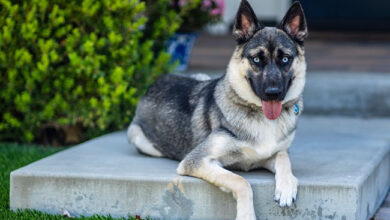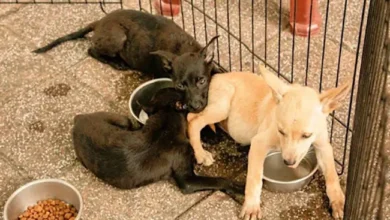
The vaccination of puppies or puppy shots as generally termed is one of the crucial steps in assuring that the puppy will have a healthy life. The when, where, and which of vaccinations vary from puppy to puppy. Always consult your veterinarian to determine which vaccines are appropriate for your puppy.
- The age at which puppies can effectively be immunized is proportional to the amount of antibody protection the puppy received from its mother. High levels of maternal antibodies present in the puppies’ bloodstream will block the effectiveness of a vaccine. When the maternal antibodies drop to a subsequent low level in the puppy, commercial immunization will work.
- The timing of the vaccines is important. Peak immune response is at 3-4 weeks. Another vaccine at this time builds upon the previous immune system response resulting in stronger immunity. It is not the number of vaccines that your puppy gets, but the timing that is important. This has to do with interference by maternal antibodies.
It is recommended to carry out vaccines through 16-20 weeks of age. Almost all researchers agree that it is required to give at least three combination vaccinations and repeat these at one year of age.
Dog Vaccination schedule:-
The core vaccines for pups include:
- distemper, – given as a series beginning as early as six weeks, followed by boosters. Can be given as combination with other vaccines.
- canine adenovirus-2 (hepatitis and respiratory disease) – initial immunization given as a series beginning as early as 6-8 weeks. Can be combined with distemper.
- canine parvovirus-2 – series of vaccines given from 6=20 weeks followed by boosters
- rabies – initial inoculation as early as 3 months with a second shot later. After the second shot, the dog should receive booster shots either annually or every 3 years depending on the vaccine used.
Non-core vaccines include:
- leptospirosis – initial shots begin as early as 6 weeks followed by boosters. Often combined with distemper and hepatitis vaccinations.
- coronavirus – initial shots begin as early as 6 weeks followed by boosters.
- canine parainfluenza and Bordetella bronchiseptica (both are causes of kennel cough) – initial shots begin as early as 6 weeks followed by boosters.
- Borrelia burgdorferi (causes Lyme disease) – depends on veterinary doctor.
Consult with your veterinarian to select the proper vaccines for your puppy. After 6 months veterinary visits gradually taper off and your pup will require only booster doses.
Vaccine reaction:
There is a less than 5% chance that your puppy may have an allergic reaction to something in the vaccine. Because the vaccines change on every visit during the puppy series, look for allergic reactions each time your puppy is vaccinated. The more common type of reaction is where the eyes, lips, nose and face swell up, or the pup gets lumps all over his body. This can happen within 15-30 minutes, 2-3 hours, or 6-8 hours later. Treatment for this involves an injection from the veterinarian.
Important Tags
Dry dog food |Amazing Dog Costumes| Different Dog Breeds Dog food advisor |Greenies Pill Pockets |sensitive dog breeds |neighbors dog won’t stop barking|hypoallergenic dog treats recipes|most trainable dogs |dog kennel ideas|




